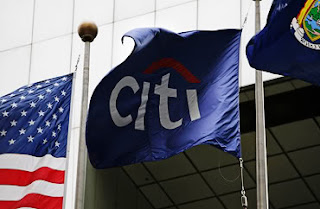Forex Market size and liquidity
The foreign exchange market is unique because of the following characteristics:
- the high trading volumes
- the extreme liquidity of the market
- large number of traders in the market
- large variety of traders
- geographical dispersion
- long trading hours: 24 hours a day (except on weekends)
- the many factors that affect exchange rates
- the low margins of profit
In order to understand the functioning of the forex or the foreign exchange trading markets, it is primarily necessary to comprehend what is meant by the term ‘relative value’. It can be substantiated as follows. Every country in the world has its own distinct currency and it is possible to compare the value of the currency of one country to that of the currency of another country by determining a secular value which is popularly referred to as the relative value. It is always necessary to keep in mind that the relative value will never be a regular value but rather it will continue to change across regular time intervals influenced by the alterations in the value of the currency in the financial markets.
Forex has often been referred to as the market closest to the perfect competition. According to the BIS, average daily turnover in traditional foreign exchange markets is estimated at $3.21 trillion. Daily averages in April for different years, in billions of US dollars, are presented on the chart below:

This $3.21 trillion in global foreign exchange market "traditional" turnover was broken down as follows:
- $1,005 billion in spot transactions
- $362 billion in outright forwards
- $1,714 billion in forex swaps
- $129 billion estimated gaps in reporting
In addition to "traditional" turnover, $2.1 trillion was traded in derivatives.
Exchange-traded forex futures contracts were introduced in 1972 at the Chicago Mercantile Exchange and are actively traded relative to most other futures contracts. Forex futures volume has grown rapidly in recent years, and accounts for about 7% of the total foreign exchange market volume, according to The Wall Street Journal Europe (5/5/06, p. 20).
Average daily global turnover in traditional foreign exchange market transactions totaled $2.7 trillion in April 2006 according to IFSL estimates based on semi-annual London, New York, Tokyo and Singapore Foreign Exchange Committee data. Overall turnover, including non-traditional foreign exchange derivatives and products traded on exchanges, averaged around $2.9 trillion a day.
This was more than ten times the size of the combined daily turnover on all the world’s equity markets. Foreign exchange trading increased by 38% between April 2005 and April 2006 and has more than doubled since 2001. This is largely due to the growing importance of foreign exchange as an asset class and an increase in fund management assets, particularly of hedge funds and pension funds. The diverse selection of execution venues such as internet trading platforms has also made it easier for retail traders to trade in the foreign exchange market.
Because foreign exchange is an OTC market where brokers/dealers negotiate directly with one another, there is no central exchange or clearing house. The biggest geographic trading centre is the UK, primarily London, which according to IFSL estimates has increased its share of global turnover in traditional transactions from 31.3% in April 2004 to 32.4% in April 2006. RPP
The ten most active traders account for almost 73% of trading volume, according to The Wall Street Journal Europe, (2/9/06 p. 20). These large international banks continually provide the market with both bid (buy) and ask (sell) prices. The bid/ask spread is the difference between the price at which a bank or market maker will sell ("ask", or "offer") and the price at which a market-maker will buy ("bid") from a wholesale customer. This spread is minimal for actively traded pairs of currencies, usually 0–3 pips. For example, the bid/ask quote of EUR/USD might be 1.2200/1.2203 on a retail broker. Minimum trading size for most deals is usually 100,000 units of currency, which is a standard "lot".
These spreads might not apply to retail customers at banks, which will routinely mark up the difference to say 1.2100 / 1.2300 for transfers, or say 1.2000 / 1.2400 for banknotes or travelers' checks. Spot prices at market makers vary, but on EUR/USD are usually no more than 3 pips wide (i.e. 0.0003). Competition is greatly increased with larger transactions, and pip spreads shrink on the major pairs to as little as 1 to 2 pips.
Forex Trading characteristics
There is no unified or centrally cleared market for the majority of FX trades, and there is very little cross-border regulation. Due to the over-the-counter (OTC) nature of currency markets, there are rather a number of interconnected marketplaces, where different currency instruments are traded. This implies that there is not a single dollar rate but rather a number of different rates (prices), depending on what bank or market maker is trading. In practice the rates are often very close, otherwise they could be exploited by arbitrageurs instantaneously. A joint venture of the Chicago Mercantile Exchange and Reuters, called FxMarketSpace opened in 2007 and aspires to the role of a central market clearing mechanism.
The main trading centers are in London, New York, Tokyo, Hong Kong and Singapore, but banks throughout the world participate. Currency trading happens continuously throughout the day; as the Asian trading session ends, the European session begins, followed by the North American session and then back to the Asian session, excluding weekends.
There is little or no 'inside information' in the foreign exchange markets. Exchange rate fluctuations are usually caused by actual monetary flows as well as by expectations of changes in monetary flows caused by changes in GDP growth, inflation, interest rates, budget and trade deficits or surpluses, large cross-border M&A deals and other macroeconomic conditions. Major news is released publicly, often on scheduled dates, so many people have access to the same news at the same time. However, the large banks have an important advantage; they can see their customers' order flow.
Currencies are traded against one another. Each pair of currencies thus constitutes an individual product and is traditionally noted XXX/YYY, where YYY is the ISO 4217 international three-letter code of the currency into which the price of one unit of XXX is expressed (called base currency). For instance, EUR/USD is the price of the euro expressed in US dollars, as in 1 euro = 1.3045 dollar. Out of convention, the first currency in the pair, the base currency, was the stronger currency at the creation of the pair. The second currency, counter currency, was the weaker currency at the creation of the pair.
The factors affecting XXX will affect both XXX/YYY and XXX/ZZZ. This causes positive currency correlation between XXX/YYY and XXX/ZZZ.
On the spot market, according to the BIS study, the most heavily traded products were:
- EUR/USD: 28 %
- USD/JPY: 18 %
- GBP/USD (also called sterling or cable): 14 %
and the US currency was involved in 88.7% of transactions, followed by the euro (37.2%), the yen (20.3%), and the sterling (16.9%) (see table). Note that volume percentages should add up to 200%: 100% for all the sellers and 100% for all the buyers.
Although trading in the euro has grown considerably since the currency's creation in January 1999, the foreign exchange market is thus far still largely dollar-centered. For instance, trading the euro versus a non-European currency ZZZ will usually involve two trades: EUR/USD and USD/ZZZ. The exception to this is EUR/JPY, which is an established traded currency pair in the interbank spot market.
With the advancement of the various communication techniques over the years, the internet has emerged as a great medium which can play a vital role in facilitating different kinds of financial activities and it is interesting to note that forex ahs immensely benefited from it. There are today a huge number of investors who are engaged in online forex trading and there is a huge demand because of the greater chance of reaping profitable benefits through this form of currency trading.
It is also believed by most financial experts that currency trading via forex is a better option compared to investing in stock markets. This is because the initial costs of starting trading is quite low and since the financial markets are characterized by volcanic ups and downs, in case of forex trading it is possible to reap richer dividends despite a falling market.
Moreover, forex is also preferable because here the exchange rates are not dictated by a single centralized authority and the trading volume is also quite high. Significantly forex trading is not restricted within pre-determined boundaries and is therefore accessible widely. With the progress of time it is believed that the foreign exchange trading market or forex will emerge as a lead player in the financial market and will continue to reap higher profit levels in times to come.

 Welcome to OnlineForexTrading.co.uk your mini guide to online Forex trading, where you’ll be able to find out key information about Forex, Forex trading, Forex tips and many more.
Welcome to OnlineForexTrading.co.uk your mini guide to online Forex trading, where you’ll be able to find out key information about Forex, Forex trading, Forex tips and many more. Unlike stock markets, there is no need for a lot of inside information in order to foresee market trends. Exchange rates are built on confidence in a certain currency, which ultimately stems from good macroeconomic indicators, providing a specific country is performing well from an economic point of view. One can have free access to this kind of information by reading economic-focused publications, guides, country pages and so on.
Unlike stock markets, there is no need for a lot of inside information in order to foresee market trends. Exchange rates are built on confidence in a certain currency, which ultimately stems from good macroeconomic indicators, providing a specific country is performing well from an economic point of view. One can have free access to this kind of information by reading economic-focused publications, guides, country pages and so on.
































